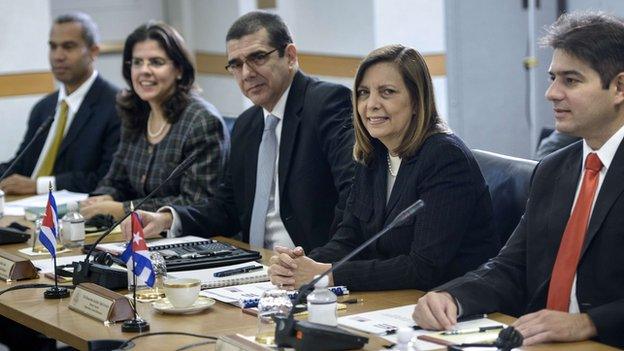Obama-Castro summit caps thaw in US-Cuba relations
- Published
Barack Obama: "We have very different views of how society should be organised"
US President Barack Obama has said his meeting with Cuban President Raul Castro will help both countries "turn the page" after decades of hostility.
He described the meeting on the fringes of the Summit of the Americas in Panama as "candid and fruitful".
Mr Obama said that the former foes would continue to have differences but could advance mutual interests.
The meeting was the first formal talks between the two countries' leaders in more than half a century.
"What we have both concluded is that we can disagree with a spirit of respect and civility," said President Obama. "Over time, it is possible for us to turn the page and develop a new relationship between our two countries."
His remarks came at the end of a regional summit which has been dominated by the historic thaw between US-Cuba relations.
'Forgiveness'
Cuban leader Raul Castro said that the two countries had "agreed to disagree" when necessary.
"We are disposed to talk about everything, with patience," he said. "Some things we will agree with, and others we won't."
Earlier, the Cuban leader referred to Mr Obama as an "honest man" after a lengthy speech largely taken up with the history of the relationship between the US and Cuba.
"When I talk about the revolution, the passion oozes out of me," the Cuban leader said. "I have to ask President Obama for forgiveness. He is not responsible for the things which happened before his time."
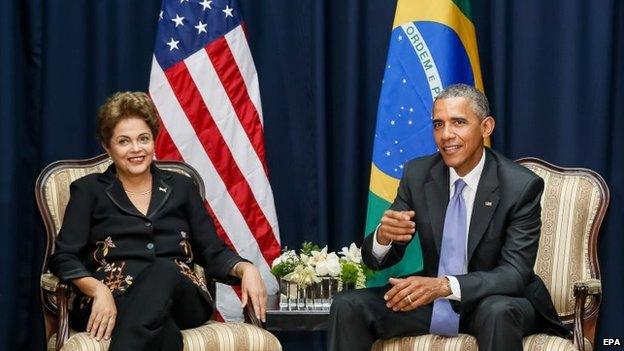
Brazilian President Dilma Rousseff hailed the reconciliation between the US and Cuba as a courageous effort
Latin American and Caribbean leaders at the summit in Panama have welcomed the reconciliation.
Brazilian President Dilma Rousseff hailed it as a courageous effort to end the last vestiges of the Cold War, which she said had caused great damage in the hemisphere.
President Cristina Fernandez de Kirchner of Argentina gave the main credit to Cuba, saying it had fought with unprecedented dignity against the US blockade.

At the scene: Vanessa Buschschluter, BBC News, Panama City
This summit was always going to be about the interaction between President Obama and Raul Castro.
The White House had hinted that they were interested in a one-to-one meeting although none had been officially scheduled.
In the end, it took place in a small nondescript room in a Panama City conference centre.
The two leaders did not look exactly at ease, sitting on small chairs slightly angled towards each other, but their tone was cordial.
Mr Obama called the meeting "historic". Mr Castro said he would continue taking steps to normalise relations between the two former foes.
The meeting was in essence symbolic. With the cameras flashing away, no decisions were made.
But its message was clear: we have our differences, but we can do business with each other.
Read more from Vanessa:

The US broke off diplomatic relations with Cuba in 1959 after Fidel Castro and his brother Raul led a revolution toppling US-backed President Fulgencio Batista. The Castros established a revolutionary socialist state with close ties to the Soviet Union.
Mr Castro has called for the lifting of the US economic blockade on Cuba and the country's removal from Washington's list of state sponsors of terrorism.
For Washington, political reform and human rights in Cuba are key issues. Mr Obama is expected to remove Cuba from the terrorism list in the coming days.
The Summit of the Americas brings together the leaders of North, Central and South America. This, the seventh, is the first which Cuba attended.
Attempts to improve relations between the US and Cuba began in December when Mr Obama declared Washington's approach "outdated".
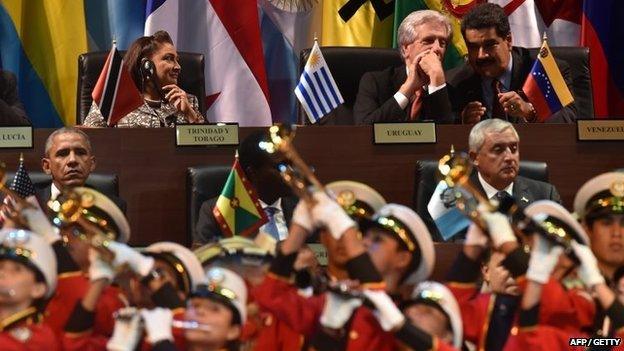
This seventh summit was the first in which all 35 nations were represented
As US ties with Cuba improve, those between Venezuela and Washington remain fractious.
The US imposed sanctions last month on a group of Venezuelan officials it accuses of human rights abuses. Mr Obama also issued an executive order declaring Venezuela a threat to US national security.
Venezuelan President Nicolas Maduro has described the order as "disproportionate".
President Maduro spoke briefly at the summit to President Obama, who stressed that the US was interested in supporting and not threatening Venezuela.
The Venezuelan leader disputed that view, but according to a tweet from one of his aides "there was a lot of truth, respect and cordiality" during the short conversation.
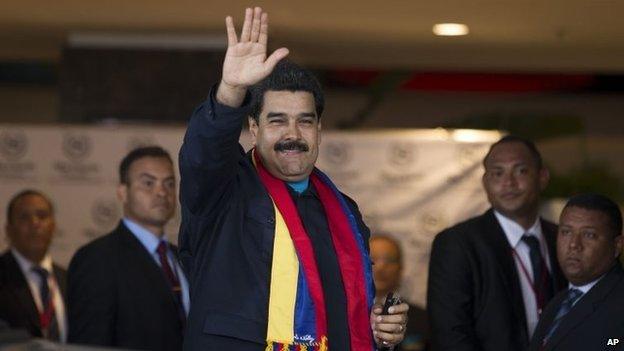
Mr Obama told President Maduro that the US is interested in supporting and not threatening Venezuela
The summit also highlighted differences between President Rafael Correa of Ecuador and the US.
Mr Correa said the US had failed to live up to its ideals: "Let's talk about human rights. In Ecuador we don't have torture, the death penalty or extrajudicial renditions."
In response, Mr Obama said the US does not claim to be perfect. "We make a claim to being open to change," he said.
- Published10 April 2015
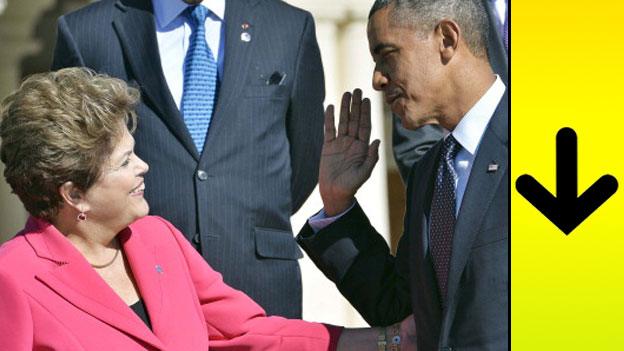
- Published9 April 2015
- Published8 April 2015
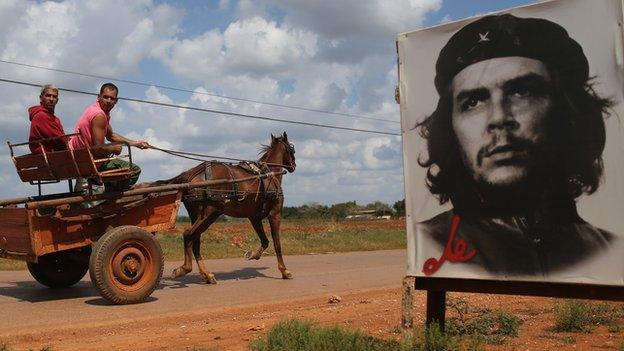
- Published10 April 2015
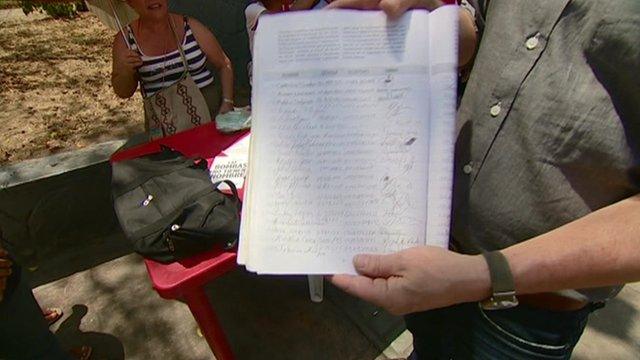
- Published27 February 2015
